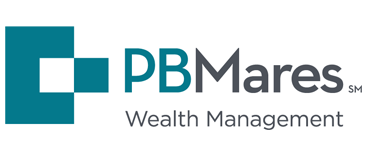Throughout the past several months investors have seen turbulent markets affect not only their portfolios but their livelihood as well. As we continue to monitor this unsettling time we also see opportunity. In particular, the economic downturn coupled with historically low interest rates provides our clients with unique wealth transfer opportunities that may never be as advantageous as now.
There are several avenues investors can take to effectively transfer their wealth.
Currently, a person may transfer up to $11,580,000 without subjecting their estate to any federal transfer tax. This ‘lifetime exemption’ is the highest it has ever been. The exemption is currently due to sunset at the end of 2025 and revert back to pre-2018 levels, however legislative differences in Washington guarantee that this exemption is anything but guaranteed. As such, many investors view this an opportune time to utilize the large exemption while it still exists. In addition, clients may make gifts of up to $15,000 in 2020 without depleting their lifetime exemption at all. This annual exclusion amount may increase based on inflation per year. For example, a married couple may gift $15,000 each to a child and $15,000 each to a spouse of their child. This results in an overall tax-free gift of $60,000 in one year.
While simply gifting assets may be advantageous right now, for some clients, loaning assets may be more feasible. Many families may have members experiencing financial hardship or trouble finding credit for purchasing a home or business during the current crisis. A low interest loan may be a good way to help them through this difficult time.
In order to be considered a loan and not a gift, the IRS mandates a minimum required interest rate called the Applicable Federal Rate (AFR). These rates are adjusted monthly. As of May 2020, these AFR rates are the lowest ever with short-term loans with maturities of less than 3 years at 0.25% and long-term loans with maturities of greater than 9 years at 1.15%. These types of loans can be used to restructure existing high interest debt or simply allow for loved ones to utilize a possible inheritance earlier in life while also providing an income stream to the lender. In cases where the money is used for a house, business, or other investments, any growth in value is not included in the lender’s estate for tax purposes. It is recommended these loans be formalized in nature and not simply a verbal arrangement.
In addition to simple loan structures, sophisticated trusts which utilize Section 7520 rates may also be desirable. These rates are 120% of the AFR and are also currently at all-time lows.
Grantor Retained Annuity Trusts (GRATs) may be established take advantage of current rates. An irrevocable transfer is made into the trust most likely with property that is expected to increase in value. The creator (or grantor) of the trust retains income interest for a certain amount of years. The income interest is calculated by applying the current Section 7520 rate to the value of assets transferred. If the trust appreciates more so than that Section 7520 rate, the appreciation remains in the trust (for the benefit of your named beneficiaries). Properly structured, these trusts result in a wealth transfer with no taxable gifts and no use of your Federal Exemption. Instead of retaining the interest income, a client may wish to donate it to charity in which case a Charitable Lead Annuity Trust (CLAT) could be established. In this case, the trust may be structured so that a charitable deduction is realized on almost 100% of the value of the remainder interest. The lower the Section 7520 rate, the lower the remainder interest and the higher the charitable deduction.
Given the complexity of these loans and trusts we recommend you speak with your tax advisor and attorney. Wondering how your estate plan stands up? Our Wealth Management team can discuss options to help you achieve your financial goals and connect you with local estate attorneys to implement your plan.
Questions? Contact PBMares’ Wealth Management team today.
About the Authors:






